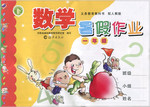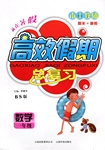题目内容
Smartphone Security Blankets
Security—for the information on your smartphone, as well as for the phone itself—is a hot topic these days. The truth is that you’re packing a lot of sensitive information on your phone, and you should keep it safe.
When it comes to physical security, iPhone users would do well to download Find My iPhone, a free app (application program) from Apple that allows you to visit a website and see your (lost, stolen or misplaced) phone on a map. You can then sound an alarm, send a message that will pop up on its screen, lock the phone or erase all your data.
Android does not have an exact equivalent, but there are plenty of alternatives. A free app called Lookout offers the find-my-phone feature. The paid version allows you to wipe the data from your phone remotely.
Then there is your coffee shop’s WiFi network. Anyone with minimal technical expert skill can snoop on(窥视)people using shared wireless networks, harvesting passwords and other personal data. Lookout’s apps will caution you when you’ve logged on to an unsecure network, but cannot protect you once you’re there.
In order to protect yourself on such networks, you can use a virtual private network, or V.P.N. This turns all your activity into nonsense to anyone trying to read along with you from across the Starbucks. It also keeps websites from tracking you and, if you’re traveling, allows you to get access to sites that may be blocked in other countries.
If you have an iPhone, the simplest V.P.N. app is probably Hotspot Shield, whose distinguishing feature is said to be that it automatically kicks in each time you start browsing (浏览), as opposed to other V.P.N. apps that require you to start them up manually. This matters, because even if you decide you want a V.P.N. app, you want to spend approximately zero time thinking about it. For the most part, that was true of Hotspot Shield, though occasionally it took a while to connect or temporarily lost connection without warning. I found myself having to turn the app on and off sometimes, which involved setting my phone constantly.
If even reading about the settings on your phone drives you crazy, then it is probably best to stay away from a V.P.N. app. But if you’re the type who can’t resist checking your bank balance from your corner bar, the hassle may be preferable to the risk.
64. Which of the following can warn you against the unsecure network?
A. Android. B. V.P.N. C. Lookout. D. Find My iPhone.
65. By using V.P.N., users can _______.
A. find their lost phone on the Internet
B. erase all the data from the phone remotely
C. check their bank balance now and then
D. save their browsing from being tracked
66. The underlined word “that” in Para. 6 refers to the fact that _____.
A. a V.P.N. app kicks in automatically
B. the user starts V.P.N. apps manually
C. the app takes a while to connect
D. users spend no time thinking about it
64. C 65. D 66. A

 暑假作业海燕出版社系列答案
暑假作业海燕出版社系列答案 本土教辅赢在暑假高效假期总复习云南科技出版社系列答案
本土教辅赢在暑假高效假期总复习云南科技出版社系列答案 暑假作业北京艺术与科学电子出版社系列答案
暑假作业北京艺术与科学电子出版社系列答案SEOUL - Samsung Electronics, the world’s largest smartphone maker, said Thursday that it has sold more than 10 million units of Galaxy S4, in ______ a month since its debut (首次亮相).
| A.less than | B.more than | C.other than | D.rather than |
Your smartphone can do a lot of things. It can call people. It connects to the Internet. It enables you to play fun games. But there is a dark side to this smart little equipment of yours----- it might also spread disease.
“People are just likely to get sick from their phones as from handles of the bathroom, ” Jeffrey Cain, the president of the American Academy of Family Physicians , told The Wall Street Journal.
This may be hard to believe, but scientists reached this conclusion after they tested eight cell phones from an office in Chicago. All the tested phones showed high numbers of coliforms (大肠菌), a kind of bacteria found in human waste , with about 2700 to 4200 units of the bacteria on each phone. The bacteria can cause flu, pinkeye and other diseases . That is right --- your phone is covered in our human waste.
Although computers, keys and pens carry germs (细菌) , our phones get far dirtier. They touch a lot of things, including our hands and the inside of our pocket or purse. We take them almost everywhere: the bus, the subway and who hasn’t played Angry Birds or Fruit Ninja while sitting on the toilet?
“Some things that we think are personal are actually more public than we imagine,” Cain said. What is even worse is that after the phone returns from its dirty trip, it then spends most of its time cozying up to our faces. You don’t think about how often you touch your phone to your face, do you? Our noses, mouths and ears are all warm and rich in grease (油脂) , an environment that germs really like.
So how do you keep your phone clean? Alcohol is effective when used to kill germs from the back and side of your phone. But it might harm the screen. There is one simple and reliable way you can reduce the germs on your phone’s surface: wash your hands regularly.
【小题1】The underlined word “dark” in the first paragraph means _______
| A.black | B.hopeless | C.unpleasant | D.unclear |
| A.Terrified | B.concerned | C.Satisfying | D.Threatening |
| A.people love to share their phones more than they realize |
| B.our personal items could be as risky to our health as public items |
| C.phones are used in public places more than people realize |
| D.Most people don’t know how dirty their cell phones are |
| A.Tips on the use of phones |
| B.Health problems caused by the use of phones |
| C.The danger of coliforms infection |
| D.The influence that phone have on our life |